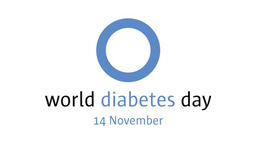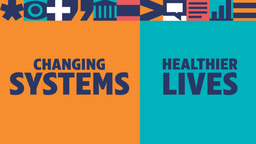BMC Primary Care's Collection: Cancer screening and prevention - Open for Submissions!
Published in Healthcare & Nursing, Cancer, and Public Health

Cancer is a major global health challenge and remains one of the leading causes of mortality. Evidence shows that many cancers can be prevented or detected earlier through screening and targeted interventions. Primary care is central to this process, providing the first point of contact for patients and an essential setting for implementing evidence-based strategies. By identifying risk factors, facilitating access to screening, and supporting informed decision-making, primary care teams help translate preventive guidelines into routine practice.
This research is increasingly important as cancer incidence continues to rise globally, placing greater emphasis on prevention and early detection.
To advance research in this critical area, BMC Primary Care are inviting submissions to a Collection on Cancer screening and prevention, which is open for new submissions until 23 February 2026. This Collection seeks to bring together research that informs clinical practice and policy, with a special focus on:
- Innovations in early detection methods
- The role of primary care and general practitioners in cancer prevention
- Evaluation of screening guidelines
- Patient education strategies in screening
- Strategies for implementing and disseminating effective interventions
- Understanding the role of context (geographic area, practice setting, population served) on intervention uptake, tailoring, and effectiveness
Meet the Guest Editors
Melinda Davis, PhD, MCR, Oregon Health & Science University, USA
Dr Melinda Davis is a Professor in the Department of Family Medicine and OHSU-PSU School of Public Health and is the Director of the Oregon Rural Practice-based Research Network and the OCTRI Community and Collaboration Core at Oregon Health & Science University (OHSU). Dr Davis is a participatory implementation scientist who collaborates with patient, community, and health system partners to adapt and implement interventions to improve health equity in rural and low-resourced settings. Dr Davis leads a portfolio of research and technical assistance contracts funded by Federal and State partners and is currently co-lead of the Primary Care Rural and Frontier Clinical Trials Innovation Center (PRaCTICe), a CARE™ for Health Network Research Hub.
Csaba Móczár, PhD, MD, Semmelweis University, Hungary
Dr Csaba Móczár is an associate lecturer and clinical trainer in the Department of Family Medicine at Semmelweis University in Budapest, Hungary. He specializes in Family Medicine and Internal Medicine and is a family doctor. His academic and professional qualifications are Master of Healthcare Leadership and Master of Health Economics and Management. Dr Móczár is a member of the Hungarian Society of Nephrology, Cardiology, and Diabetology and the National Association of Family Medicine Researchers. He serves as a supervisory board member for the Hungarian Hypertension Society and is a direct member of the WONCA and EGPRN, WONCA Working Party on Research, European Society of Cardiology, and the European Society of Hypertension. Furthermore, he is the editor-in-chief of a Hungarian journal for general practitioners dealing with prevention in primary care. The main field of his research and teaching activities is prevention in primary care and the quality aspects of preventive work. He cooperates with the Public Health Department of the University of Debrecen, Hungary.
Submission guidelines
This Collection welcomes submission of original Research Articles. Review articles will be considered at the Editor’s discretion. Before submitting your manuscript, please ensure you have read our submission guidelines. Articles for this Collection should be submitted via our submission system, SNAPP. During the submission process you will be asked whether you are submitting to a Collection, please select [“Cancer screening and prevention”] from the dropdown menu.
Articles will undergo the journal’s standard peer-review process and are subject to all of the journal’s standard policies. Articles will be added to the Collection as they are published.
The Guest Editors have no competing interests with the submissions which they handle through the peer review process. The peer review of any submissions for which the Guest Editors have competing interests is handled by another Editorial Board Member who has no competing interests.
If accepted for publication, article processing charges applies. Please click here to find out about our standard waiver policy.
The Collection is still open for submissions! The submission deadline is 23 February 2026.
Follow the Topic
-
BMC Primary Care

Previously known as BMC Family Practice, this is an open access, peer-reviewed journal that considers articles on all aspects of primary health care research.
Related Collections
With Collections, you can get published faster and increase your visibility.
Communication in primary care
BMC Primary Care is calling for submissions to our Collection Communication in primary care. Effective communication in primary care is crucial for fostering strong patient-doctor relationships and enhancing health outcomes. This Collection aims to explore the various dimensions of communication within primary care settings, including patient-doctor interactions, the role of health literacy, and the dynamics of shared decision-making. By investigating these elements, we can better understand how communication influences patient experiences, satisfaction, and adherence to treatment plans.
The significance of communication in primary care has gained heightened attention, particularly in light of recent advances in telehealth and digital health technologies. These innovations have transformed traditional communication methods, presenting both opportunities and challenges for healthcare providers. Additionally, effective communication strategies have been shown to improve patient engagement, reduce misunderstandings, and promote collaborative care. As healthcare systems increasingly prioritize patient-centered approaches, understanding and enhancing communication practices is essential for delivering high-quality primary care.
Continued research in this field may lead to the development of novel communication frameworks and training programs that equip healthcare providers with the skills necessary to navigate the complexities of patient interactions. This could result in more effective shared decision-making processes, ultimately improving health outcomes and patient satisfaction. Additionally, advancements in technology may facilitate more personalized communication strategies, bridging gaps in understanding and fostering stronger patient-provider relationships.
In this Collection, we welcome submissions that cover a wide array of topics, including but not limited to:
- Strategies for enhancing patient-doctor communication
- Health literacy and patient engagement
- Impact of technology on healthcare communication
- Shared decision-making in primary care
All manuscripts submitted to this journal, including those submitted to collections and special issues, are assessed in line with our editorial policies and the journal’s peer review process. Reviewers and editors are required to declare competing interests and can be excluded from the peer review process if a competing interest exists.
Publishing Model: Open Access
Deadline: Jul 30, 2026
Indigenous health and well-being
BMC Primary Care is calling for submissions to our Collection, Indigenous health and well-being. Historically, Indigenous communities have faced significant health disparities driven by systemic inequalities, cultural disconnection, and barriers to accessing healthcare. This Collection seeks to address these issues by gathering research that highlights the unique health challenges faced by Indigenous peoples, including chronic diseases, mental health issues, and the impact of social determinants on health outcomes. By amplifying Indigenous voices and perspectives, we aim to foster a deeper understanding of their health needs and aspirations.
The significance of researching Indigenous health lies in its potential to inform and transform healthcare practices, policies, and systems to achieve health equity. As research grows, we anticipate developments in the field of Indigenous health that may lead to the co-creation of innovative healthcare models. By fostering collaborations between Indigenous communities and healthcare providers, there is potential for enhanced accessibility, culturally appropriate care, and the development of policies that prioritize Indigenous health and well-being. Future studies may also uncover new insights into the role of traditional practices in modern healthcare systems, ultimately bridging the gap between Western medicine and Indigenous healing practices.
In this Collection, we welcome submissions that span a wide array of topics, including but not limited to:
- Barriers to healthcare access for Indigenous populations
- Community health initiatives in Indigenous communities
- Health equity strategies for Indigenous well-being
- Cultural competency in Indigenous healthcare
This Collection supports and amplifies research related to SDG 3: Good Health and Well-being and SDG 10: Reduced Inequalities.
All manuscripts submitted to this journal, including those submitted to collections and special issues, are assessed in line with our editorial policies and the journal’s peer review process. Reviewers and editors are required to declare competing interests and can be excluded from the peer review process if a competing interest exists.
Publishing Model: Open Access
Deadline: Aug 05, 2026





Please sign in or register for FREE
If you are a registered user on Research Communities by Springer Nature, please sign in